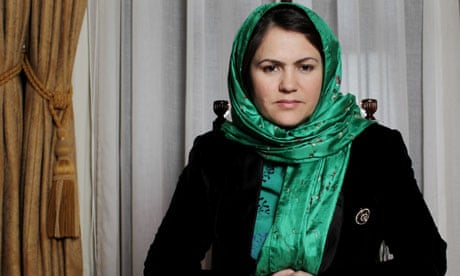An Afghan MP has accused her conservative opponents of blocking a law to protect women's rights saying parts of it violate Islamic principles.
The law was enacted in 2009 by presidential decree but Fawzia Koofi wanted to cement it with a parliamentary vote to prevent its future reversal.
The law bans child marriage and the practice of selling and buying women to settle disputes. Kofi said the law was introduced in parliament on Saturday, but met such fierce opposition that it was withdrawn.
Supporters of the law feared that seeking parliamentary approval could allow conservatives to amend it and weaken protection for women or throw it out completely.
Farkhunda Zahra Naderi told the BBC after Saturday's events in parliament that her fears had been proved right.
During the debate, mullahs and other traditionalist MPs accused President Karzai of acting against Sharia law by signing the decree in the first place. They also demanded a change to the law so that men cannot be prosecuted for rape within marriage.
"There is a lack of assurance that any president of Afghanistan will have any commitment to women's issues and in particular towards this decree," Koofi told the BBC.
Karzai has come under fire for frequently changing his position on women's rights. In 2012, he endorsed a "code of conduct" issued by an influential council of clerics, which allows husbands to beat wives under certain circumstances.
